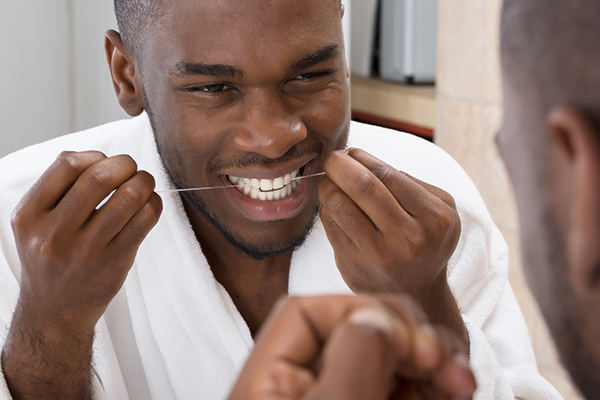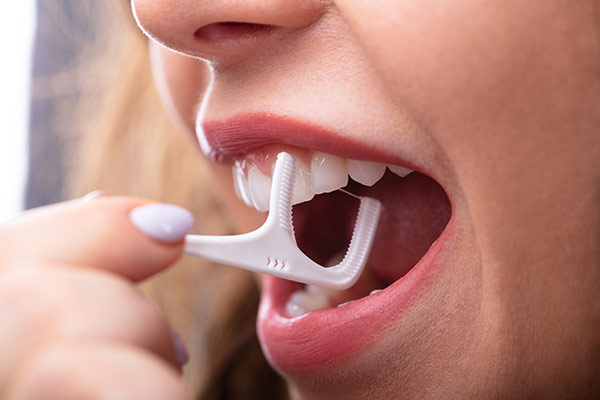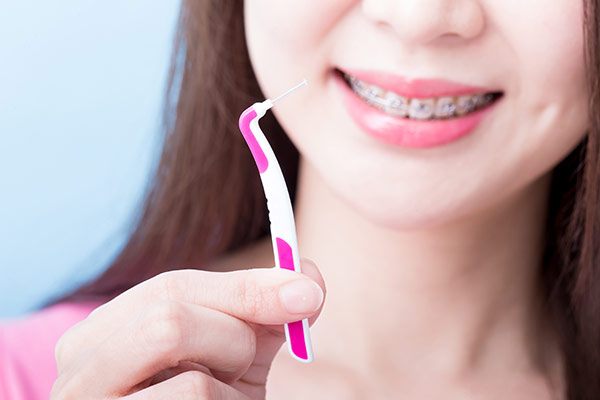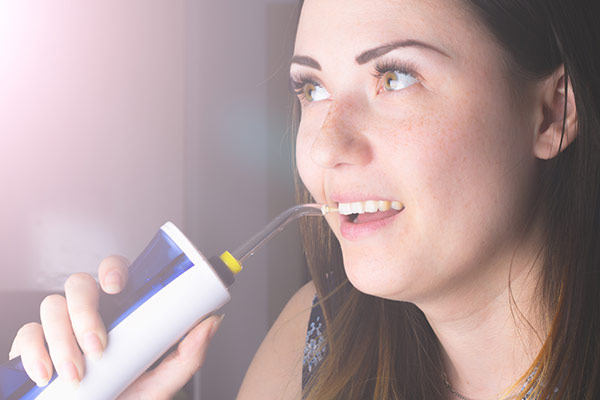
You’re proud of your dental health routine. You know you hit all the marks for great oral health. Brushing twice a day? Check. Fluoridated mouth wash? Check. Regular dental checkups each year? Check.
Flossing? Well… sometimes! “But really,” you protest, “is flossing important? I never skip a day brushing and using mouthwash. It can’t be that big of a deal!”
We hear it all the time. Flossing is too tedious, too difficult or too time-consuming. But what are the consequences for skipping this recommended dental care step? Read on to discover the truth!
The Surfaces of Your Teeth
Your teeth have, essentially, five vulnerable surfaces. The top, front, back, and both sides. Every surface of your teeth is at risk for the same factors: loss of enamel, decay or cavities. This is due to bacteria constantly assaulting them and using sugar or food-particles as fuel to thrive.
Even if you’re an expert at brushing your teeth, a toothbrush can only clean the top, front and back. These open surfaces are large enough for the bristles to thoroughly clean.
That means you have 40 percent of your teeth’s surfaces left unbrushed! While the sides may have less overall surface area, that only matters at the beginning. As decay progresses through your teeth, it can reach the most sensitive parts of your teeth and weaken them enough to cause total tooth loss.
Is Flossing Important? Absolutely!
The only way to protect your teeth fully is by cleaning every surface. Because you can’t reach the surfaces between teeth with a brush, flossing is clearly important to your dental health.
Most confusion about flossing recently comes from a misunderstood report regarding the removal of flossing from the department of Health and Human Services’ recommendations. HHS mentioned that there have been no qualified studies that answered the question “is flossing important?”
That isn’t to say that they have deemed flossing unhealthy or unimportant – just that previous studies haven’t technically followed the strict guidelines required by HHS to be considered. You can ask any dentist and they will let you know flossing is a key part of maintaining healthy teeth and gums!
The Consequences of Not Flossing
So, what happens when you don’t floss? The primary effect is, of course, increased decay. Ignored surfaces of your teeth give bacteria a chance to develop into plaque and tartar. Enamel is worn away, allowing the bacteria to reach the even more vulnerable inner sections of your teeth.
Once decay begins, it becomes harder to treat. While surface-level bacteria can be brushed or flossed, bacteria inside the tooth typically involves dental treatment like fillings.
Your gums are also at risk due to the food and bacteria trapped between your teeth. Irritated gums lead to gingivitis. This relatively light form of gum disease can be reversed easily with basic oral hygiene improvements. But if left untreated, it will develop into more advanced periodontal disease.
Like untreated decay, untreated periodontal disease eventually leads to extreme consequences for your oral health. However, gum disease is also being studied for its links to your body’s overall health. While it’s not fully understood, many studies have identified a connection between dental hygiene and other health risks such as cardiovascular problems.
Alternatives to Standard Flossing
Flossing isn’t easy for everyone. Even when you know the proper technique to hold and use floss, it can be awkward or painful – especially if you have arthritis or other mobility issues! Fortunately, there are alternatives that can make flossing more accessible or simply more convenient.
Floss Picks

Patients often raise concerns about their ability to reach certain places in their mouth while holding floss in their hands. Additionally, patients with dexterity-limiting conditions or injuries may find it impossible to use typical floss.
Floss picks circumvent this problem by giving you a tool as simple to hold as your toothbrush. Floss is pre-threaded between two connecting points, which requires you to only apply pressure and the flossing motion to clean your teeth.
These picks can be used with just one hand. They’re also handy to help children get into the habit of flossing!
Interdental Brushes

Like floss picks, interdental brushes are another way to clean the areas between your teeth without the difficulty of managing a string of floss. These brushes typically resemble little pipe cleaners with comfortable handles to hold on to.
Interdental brushes come in a variety of sizes, allowing you to find one that comfortably fits between your teeth while still fully brushing each surface. They’re popular among orthodontic patients, as interdental brushes make it easier to clean braces and the areas around them.
If you use an electric toothbrush, you may also be able to find interdental brush heads that work as attachments for your toothbrush. Just make sure to find ones that are compatible with your electric toothbrush base!
Water-Flossers

Water flossers like Waterpik are not exactly an alternative to flossing. They can feel gentler on your teeth or gums and make it easier to remove loose particles of food or debris between your teeth. However, they aren’t nearly as effective as floss at fully cleaning the difficulty gaps in your mouth.
That said, using a water flosser is certainly better than not flossing at all! Though they work best as a supplement to typical flossing, you can use a water flosser to reduce your chances at developing decay between teeth. Just don’t expect them to completely replace flossing.
Keep Your Smile Healthy
We want to help you maintain good oral health and a beautiful smile. Regular teeth cleaning and dental check-ups are an important part of your routine, just like brushing and flossing. Schedule an appointment with us or call and take the first step toward keeping your smile radiant.
Grosse Pointe Farms: (313) 881-2480
Shelby Township: (586) 803-8300

Don’t miss a thing! Connect with us on Facebook!